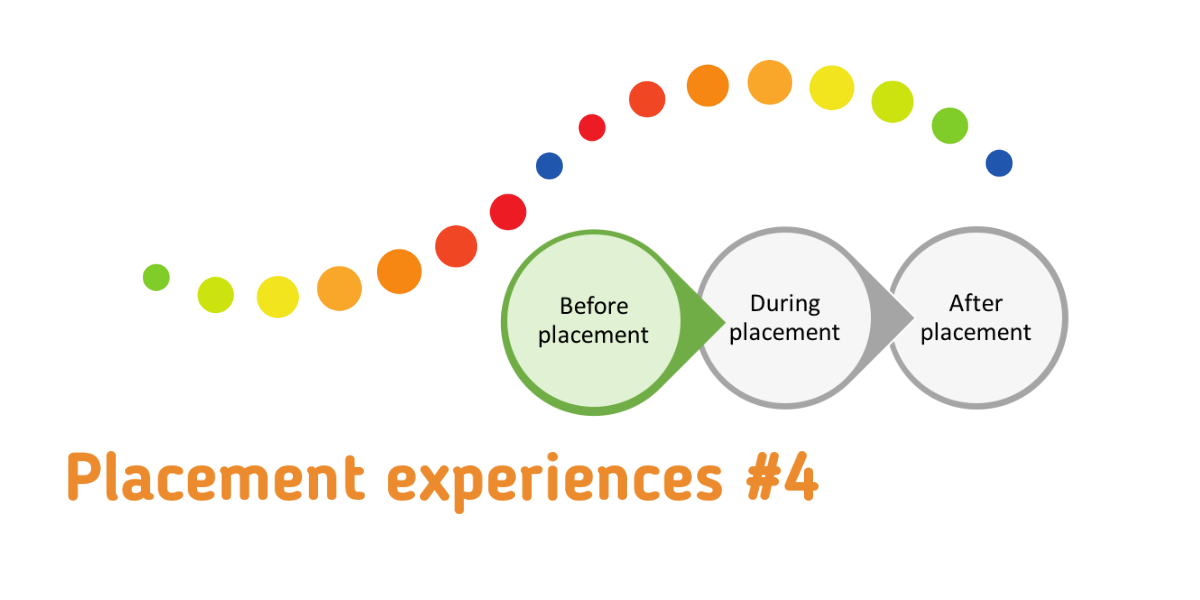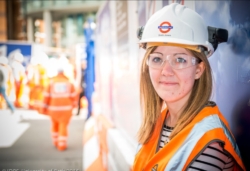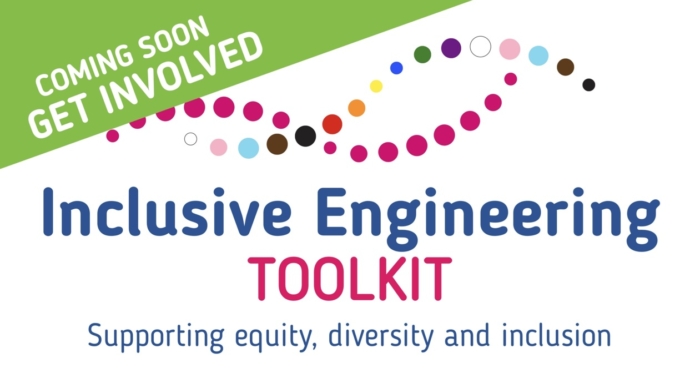Your Placement Journey Toolkit is designed to support you to get the best from your placement experience. It will help you to think about your placement, looking at your expectations, recognising your own responsibilities alongside those of your university and placement provider.
Aligned with the Engineering Placements Toolkit, designed for education institutions and employers, this toolkit aims to support your placement experience in three key stages: before, during and after placement.
Emily Jones is a civil engineering undergraduate at University of Bath. She did a one-year placement in industry where she had the opportunity to work in different projects and have a real world experience of what a civil engineer does. Emily describes her placement as being an invaluable experience, and recommends every student to be proactive and embrace all the opportunities been offered during their placement.
Tell us about your year in industry and how did you find it.
At my university we have a page where they share a list of available jobs, places where people have been before, and we pick the ones we want to apply to. Then we apply to the companies directly. Our Placement Team is really good, and they check our CV for us, and give lots of workshops on how to get through assessment centres, interviews, etc., which is very useful.
My company has a well-developed graduate and placement scheme, so they already had a lot of things in place to make sure I was getting what I needed out of the placement. In my year there were around forty people doing the placement and we met once a month where one of us presented our placement to the other students.
What did you enjoy the most and the least in your placement?
I couldn’t recommend doing a placement enough to anyone. I think this was one of he best decisions I have made. I wasn’t originally signed up to do it but I changed my mind and I am so delighted, because I think it’s really invaluable to have real world experience throughout a year. It puts what you learned in university in such a good perspective, and I found that really helpful. My company was really good because they were rotating me around, making sure I got a view of so many different aspects of the project I was working on, and trying to get me involved in other projects as well. I think I was quite lucky in my company. They were very responsive to anything I wanted to do.
What did I enjoy the least… At the beginning it was difficult. I was on a site where there was a lot of men, and being a woman, and quite young, having to tell them what to do that was quite difficult to start with. But by the end I didn’t really think about it.
What do you consider to be the 3 most important features of a quality placement?
It is meant to be a learning experience year, so you should be able to get a broad range of experience. I worked in lots of different teams, did so many different things, and that was absolutely fantastic.
You also have to have a good relationship with your supervisor, line manager and colleagues. I went to them whenever I wanted to change anything and they were able to get it sorted for me, because obviously I wasn’t in a position of power to do that. Having a good relationship with my supervisor and my team was really important.
And finally making sure you pick something that you think you will enjoy as well, and if you don´t enjoy it, try to make sure you get as much out of it as you can. I do particularly think that I want to do my placement again, afterwards. I am going back to them in the summer because I enjoyed it so much! And the reason was, I think, because I tried to make the most of the year. So try to take whatever opportunities you have and don’t really say ‘no’ to anything they ask you to do.
To what extent did this experience benefit your professional and educational life?
Educationally, my time management skills, definitely. Now that I am back to university it has been so much better. This year I’m a lot more focused in university, I can get things done a lot easier, and I think we have to be that focused during the day at work. And professionally, the company I worked for was quite a large company, and I think it will look very good on my CV to have that there. Also, I just think that any experience that you have that came out positively – and I did a very good job for the year – it’s a really good thing to back you up. In addition, it’s a year towards my chartership as well, which is nice.
What 3 key pieces of advice would you like to share with fellow students?
Pick a placement that you think you will enjoy and definitely don’t just apply and apply and apply. Do choose things that you think you would enjoy because you’ll have to do it for a whole year.
Try and make the most of the placement that you do get. If you are not enjoying it, tell your supervisor to get you moved around and try to do different things. It’s basically making the most of it, because you are there for the year.
And definitely just don’t say ‘no’ to any opportunities that were there for you, because you won’t get those opportunities again. I worked in some huge projects last year that I probably wouldn’t get the opportunity to work on if I was a graduate; it was just because I was there for a year. If you can do it just for a month it would be a really good learning experience for you, so take on whatever you can, I would say, to try and gain as much as you can from your placement.
Any views, thoughts, and opinions expressed herein are solely that of the author(s) and do not necessarily reflect the views, opinions, policies, or position of the Engineering Professors’ Council or the Toolkit sponsors and supporters.





